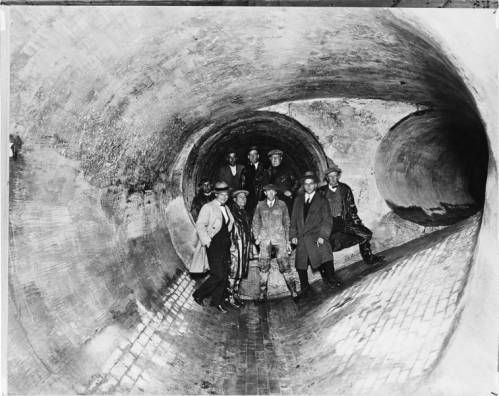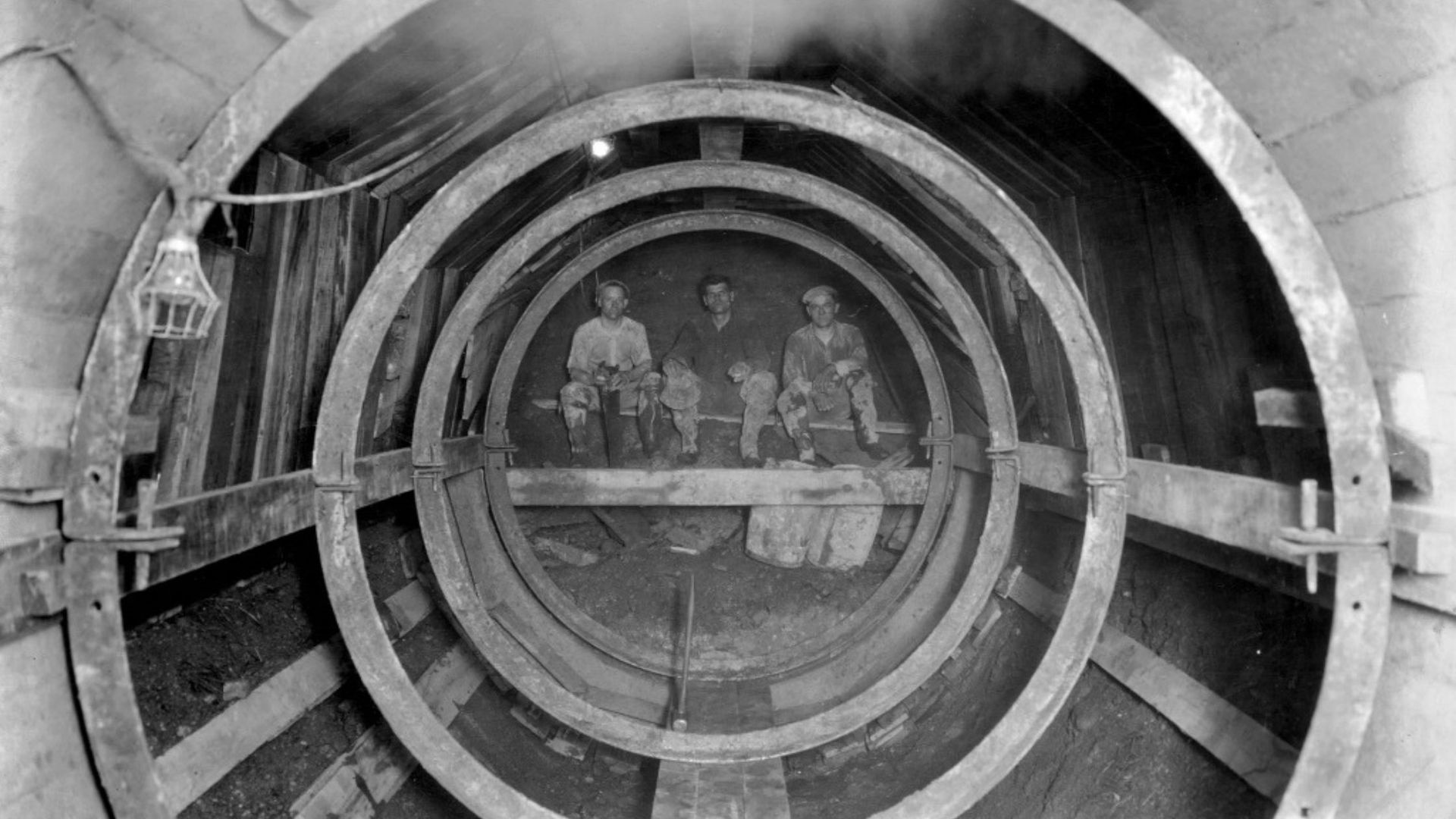About WUCA
WUCA is a non-profit organization representing professionals involved in the underground construction industry across Wisconsin. This includes contractors, suppliers, and consulting engineers specializing in sewer, water, tunnel, and related infrastructure.
Contractors: WUCA's core membership consists of the skilled contractors responsible for the hands-on work of building, maintaining, and repairing the vast network of underground infrastructure upon which our society depends. These members range from smaller, specialized businesses to large-scale contracting firms.
Suppliers: The underground construction industry relies on a vast array of specialized equipment, materials, and supplies. WUCA welcomes suppliers as crucial members, ensuring a robust supply chain that keeps projects running smoothly. This includes manufacturers of pipes, pumps, excavation equipment, safety gear, and much more.
Consulting Engineers: WUCA understands the importance of expertise in the planning and design phases of construction projects. Consulting engineers provide invaluable services such as feasibility studies, geotechnical analysis, structural design, and environmental impact assessments, ensuring projects are safe, sustainable, and meet regulatory standards.
By bringing together these different facets of the underground construction industry, WUCA creates a powerful network. Contractors can easily source materials, suppliers find a ready market for their products, and engineers collaborate with those putting their designs into action. This interconnectedness fosters efficiency, innovation, and helps ensure the success of projects across the state.
Mission
With a dedicated focus on Wisconsin contractors and workforce, WUCA drives the advancement of community infrastructure by upholding a shared high standard for quality, safety, and ethics in underground contracting.
Vision
Our vision is to champion Wisconsin's underground contractors, celebrating the unwavering commitment to rigorous standards and continuous improvement that propel the industry forward. We strive to set the national benchmark for excellence, inspiring innovation, fostering collaboration, promoting safety, improving communities, and driving growth across the sector.
Leadership
WUCA Board of Directors
President
Jim Crowley
Parisi Construction
Sec./Treasurer
Tom Zoulek
Mid City Corporation
Grant Klumb
Five Star Energy Services
Pete Schraufnagel
Super Excavators, Inc.
Adam Stanek
Gabe’s Construction
Keith Alexander
Visu-Sewer
Maxwell Oakes
A.W. Oakes & Son
Chuck Palmer
Michael Best & Friedrich
Public Works Industry Improvement Program, Inc.
President
Mike Dretzka
UPI, LLC
Vice President
New Paragraph
Sec./Treasurer
Bob Olson
Globe Contractors
Rich Johnson
RJ Underground
John Wanasek
Wanasek Corporation
Zak Schwartz
KS Energy
Kim Wehse
Wisconsin Utility Exposure, Inc.
Gerry Tetzlaff
BV Tetzlaff, Inc.
Get Involved
Volunteering for a board, committee, or task force with WUCA offers numerous benefits and opportunities for professional growth and industry impact. Whether you're passionate about safety, interested in shaping union negotiations, or eager to tackle challenges in broadband expansion and market development, there's a role for you to make a difference. By joining a committee, you'll have the chance to contribute to initiatives that establish industry best practices, engage in discussions on challenges with locating or workforce development, and lend your expertise to finding innovative solutions. Volunteering allows you to network with industry peers, gain valuable leadership experience, and shape the direction of the underground contracting industry in Wisconsin and beyond.
Step up, get involved, and be part of driving positive change with WUCA.
Please submit your
Volunteer Interest Survey so that we can help identify what areas of interest align with your own. Company Membership with WUCA is required to volunteer, to learn more
click here.

History
WUCA was established in February 1937 as the Associated Public Works Contractors of Greater Milwaukee, forerunner to the Wisconsin Underground Contractors Association. The original articles of incorporation stated that the purpose of the association was to promote the business of the individual members and to advance their mutual interest, cultivate friendly relations and cooperative effort between members, participate in matters of civic betterment and welfare, create harmony between its members and employees, eliminate unnecessary hazards to life and property, encourage the use of sound business practices, deal with bid specifications, and promote the betterment of the industry.
The Public Works Contract Labor Act (Walsh-Healey) passed Congress. It prescribed the payment of prevailing wages, limited the work week to 40 hours, and prescribed minimum health and safety benefits for contracts in excess of $10,000. On November 23, 1936 a group of Milwaukee area underground contractors got together at the local Elks Club to discuss the change in federal law and to consider the establishment of a contractor trade association.

Those first contractors included:
- Alfred Freidricks, Wisconsin Sewer Construction
- Walter Lazynski, Walter Lazynski Company
- F.A. Goll, Sr., F.A. Goll Company
- Alfred Dorst, S.W. & S Construction Company
- A. Carle, Carle & Tomasini Construction
- Milton Kroll, B. Wogikowski Company
- Jacob Hohensee, H. Hohensee Company
- Thomas G. Holton, Sr., T.G. Holton Company
- Grant Hinkamp, G.R. Fehr Company
It was agreed by the contractors present that they would organize an association to begin labor negotiations with three area unions to include laborers, operators, and truck drivers. Articles of Incorporation were filed with the Wisconsin Secretary of State for a new contractor association under the name Associated Public Works Contractors of Milwaukee. Annual dues were $5 per year with a one-time initiation fee of $15. Grant Hinkamp was elected the first association president. The first labor agreement negotiated called for wages of $1 an hour for a Top Man position.
WUCA - A Timeline
1937
Association Articles of Incorporation approved by the Wisconsin Secretary of State. The association begins labor negotiations with laborers, operators, and truck drivers. Supports funding for additional federal public works construction with the Franklin D. Roosevelt administration. The association holds contractor meetings at the Builders Trade Employers Association in Milwaukee, 407 Commerce Street.
1938
The association seeks passage of the federal Beweir Public Works Act. Joins with the Wisconsin Construction Industries Advisory Council at $5 in dues to better advise staff of the federal Work Progress Authority (WPA) as it relates to sewer and water work.
1941
Discuss a demand of Operators Local 139 on the use of oilers on each piece of heavy equipment. Negotiations with Laborers Local 113 state foreman is not to be a union member, thirty hour week for tunnel workers to be 40 hours a week, and men to furnish their own hard toe shoes and all wearing apparel. The contractors discuss pooling of equipment so they can bid upcoming Merrimac and Camp McCoy construction contracts.
1946
All association expenditures over $100 must be approved by the entire membership. The association has a net worth of $3,016.63. Members struggle to hire skilled masons, miners, pipe layers, and operating engineers. The contractors begin loaning employees between members until more skilled workers can be found. The contractors also seek a larger jurisdiction of counties for upcoming collective bargaining. At the time it was Milwaukee County only. With the state, the association seeks tax-exempt status.
1947
Association signs lease for first formal office at 611 N. Broadway Avenue, Milwaukee. Prior to that, administration handled out of contractor member Al Dorst’s office.
1949
Foreman training schools were organized with the laborers union. In those days, open-cut excavation of a trench was limited to trenching machines, clams, and draglines. It was not until the 1950’s when backhoes were developed. Trenching machines required a lot of hand labor. Trenches deeper than twenty feet were now tunneled with the use of access shafts.
1954
John Tanghe hired as association executive director. Joe Frigerio served in that position (manager) in 1946.
1960
Annual association dues $100 a year. Association affiliates with Allied Construction Employers’ Association for multi-craft collective bargaining.
1962
The association moves to a larger office at 3218 W. Fond du Lac Avenue, Milwaukee.
1965
The association creates the Public Works Industry Improvement Program for industry advancement and funds it at one cent per hour via the collective bargaining agreements. The money is to go to contract lobbying to encourage more municipal water and sewer work. John Drake, with decades of experience in the sewer industry with Walter Lazynski Company, was hired as association executive director.
Specifications Committee formed to develop a publication that is eventually called Standard Specifications for Sewer & Water in Wisconsin. By year 2003, six editions of the publication are produced with thousands of copies sold throughout the state. Donald Webster was the first committee chairman.
1968
The association moves 2835 N. Mayfair Road, Suite 35, Milwaukee, WI. The building was new that year. Association membership was 30 contractors, 58 associate firms.
1980
After many years in the bonding industry, Larry Michael hired as Executive Director, Public Works Industry Improvement Program. Ray Olson, Globe Contractors was association president.
1981
The association and its industry fund helps fund the Citizens for Sensible Sewers organization to promote combined sanitary sewer separation in the City of Milwaukee. At the time the Milwaukee Metropolitan Sewerage District was considering combined sanitary sewer separation or deep tunnel construction to deal with sanitary sewer overflows to area waterways.
1982
John Drake retires as the association Executive Director and Larry Michael assumes that additional role. That year Ed De Preter, U.S. Sewer Company, Inc. was elected association president; Leo Dretzka, Leo Dretzka Construction, Inc. vice-president; and, Tim Gabrielse, Gabe’s Construction, secretary-treasurer.
1985
The association changes its name from Associated Public Works Contractors Association of Greater Milwaukee to the Wisconsin Underground Contractors Association (WUCA) and develops an association logo. Tim Gabrielse, Gabe’s Construction is association president.
1987
Larry Michael resigns as association Executive Director. Richard W. Wanta hired as his replacement effective April 1. The association celebrates its 50th Golden Anniversary with a special recognition dinner at the Wisconsin Club in downtown Milwaukee with U.S. Congressman Tom Petri as guest speaker. NUCA president Vic Di Geronimo from Ohio also attends the dinner. Long-time association office secretary Gloria Strei retires after 21-years with the association.
1988
Over the next ten years, thousands of workers begin building 17 miles of deep tunnels for the Milwaukee Metropolitan Sewerage District for the largest Wisconsin public works project ever. WUCA also helps establish the Construction Employers Legislative Council (CELC) joining with other contractor associations for legislative lobbying in Madison, Wisconsin.
1990
The association creates the John Drake scholarship award program and started the monthly Safety & Insurance Committee meetings.
1993
WUCA conducted a dinner dance with the big band sounds of the 1940’s to reflect back on the early WUCA years. Over the next few years with a growing economy, WUCA membership grows from 85 to 150 member firms. Cryptosporidium attacks the city of Milwaukee water supply impacting 400,000 customers and the mayor issued a boil-water order for consumers. Some WUCA members get work as the city spends over $362 million to improve water quality and infrastructure after more that 100 people die.
1994
The National Utility Contractors Association presents WUCA a special William H. Clausen recognition award for charitable fundraising that raised $72,000 for various charities.
1995
Scott Maly, United Sewer and Water is WUCA president that year. WUCA works to change the Wisconsin state one-call statute to require all municipal water and sewer utilities to join Wisconsin Diggers Hotline as a mandatory requirement.
2000
The association formally opposes the idea of design build (negotiation of construction contracts) due to fear of graft, corruption, and favoritism in the award of tax-funded public works construction and prevails. With the help of other contractor associations the proposed legislation fails at the state level.
2003
WUCA members and staff visit the newly built Bradley Technology and Trade School in Milwaukee. WUCA staff meets with Wisconsin state representative Spencer Goggs in Madison to discuss the benefits of partial combined sewer separation for creating jobs in Milwaukee’s central city.
Working with contract lobbyist Brian Mitchell, WUCA seeks a change in state legislation to require municipal utilities to locate water and sewer laterals in the street right-of-way. WUCA prevails and Wisconsin Act 425 legislation is signed by the Wisconsin governor two years later. WUCA formally joins the national Common Ground Alliance for damage prevention and helps establish a Wisconsin chapter that still meets four times a year.
2007
The association joins the newly-formed Clean Water Construction Coalition located in New Jersey to promote more federal funding on infrastructure.
In December the nation faced the start of a severe recession that hurt many small businesses to include family-owned construction companies and their workers. Over the next five years of an extended economic downturn, some underground contractors went out of business and unemployment skyrocketed as the industry witnessed the slowest post-World War II recovery on record. New housing construction came to a stop and municipal utilities cut back on their sewer and water improvements. When a municipal utility did bid work, there were upwards of twenty bidders. We entered a period of no discernible economic growth. Yet the association continued with its industry promotional efforts, safety education programs, safety seminars, group luncheon meetings, conferences, fundraisers, scholarship, and legislative lobbying.
2008
New state legislation was passed when working around propane gas. WUCA members were concerned about the hazards of directional drilling near propane tanks and when some service lines that go under roadways. In early April the state required the installation of tracer wires on new sanitary sewer laterals. WUCA pushed for the code change so that contractors could find the service in future construction.
2012
The association was 75 years old this year and conducted a special recognition dinner June 20 at the Milwaukee Public Museum Streets of Old Milwaukee exhibit with 150 people in attendance.
2024
Ruth Hackney, CAE hired as the Executive Director.


